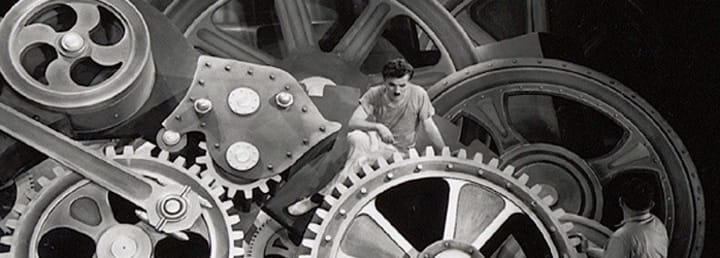How to Live Longer & Slow Down Time.
THE PERCEPTION OF TIME.

Many years ago, when I was a child, we went on a family holiday to Devon. My parents rented a beautiful cottage with a fabulous garden and orchard near the sea. I must have been about six or seven, and my brother would have been about ten.
Children of that age and all ages love to climb (I still do), especially trees. So, my brother and I found a handsom old tree and began to climb, me leading, my brother instructing. Somewhere near the top, my brother instructed me to put my right foot on a branch and that it was safe.
As you have probably already guessed, the branch was dead and snapped, and I began to fall. The curious thing is that I still remember that fall in exquisite detail. Fortunately, I hit a low branch on my descent, bounced and landed on the ground, winded and unconscious.
I made sure that my brother got punished for my fall, of course. But the reason I mention this is that time seemed to slow to almost standstill during my fall. Every detail was then, and is still, vivid in my mind. My perception of time, in that short moment, had changed completely.

Our Brains on Time
Time feels different for each one of us; we all see its passage at different rates depending on where we are, what we're doing and the urgency of the situation.
Our brains are enclosed in the dark box of our skulls, and the only connection it has with the outside world is what it receives from the senses, memories, and automatic reactions. The brain can only edit incoming information and process it for our "understanding".
If you consider that light and sound travel at different speeds, they must arrive at the brain's processing centres at different times. This can be clearly perceived when lightning strikes. The flash comes before the bang. That can only mean that our brains are editing events so that they seem to happen at the same moment.
If you see an accident involving two cars or pop a balloon, the image and the sound arrive at different times. Your brain processes the incoming information and then returns it to you as one event. They appear to be synchronised.
The brain gathers all the information and assimilates it with what it already knows and has experienced, and serves it back to us as a final, edited story that is cohesive with our beliefs and previous stories we have constructed. There is a buffer, where the brain collates all the incoming information, looks for what is related and any relevant past experience and synthesises it into a coherent story.
Story, giving meaning to events, is one of our brain's primary functions, as is pattern-making. Brains have to make sense of things. The reality, though, is that we are all living a little in the past. What we think is happening now has actually happened about half a second ago.
St Augustine, in the fourth century, explored an interesting conundrum in his reflections on time. He said; the past no longer exists, the future doesn't exist yet, and the present takes no time at all, so how can time exist? It's a paradox.
We all mostly have a sense of time as travelling at the same rate for everyone and always moving forward. The best analogy is a river, which continually flows in one direction toward the sea or lake. We think of time as being directional. Let alone Einstein's theories about time and space/time, this is not how time is perceived.

Time perception
If I were to show you a picture of a cat and then repeat that image for half a second and then repeat it again and again and again and then show you an image of a different cat, also for half a second, the new cat image would seem to be on the screen for much longer than the previous cat images.
This is because the different cat image is novel and unexpected. When the brain perceives something new and novel, it needs much more energy to process it and represent it. This is partly because the different information interrupted the anticipated pattern and sequence and had to work harder to process the information. That processing involves more detail and more different faculties in the brain, consequently, more energy. As a result, we get the feeling that it was shown to us for a longer time. It's a trick of perception and processing.
This happens whenever you are in a "heightened" or "elevated" situation—your brain kicks in areas that would typically be working quietly on autopilot in the background. The immediate part of the brain that is activated is the amygdala, our emergency control centre. It sends messages down a new memory track, and suddenly you notice everything around you and engage a heightened awareness.
When the brain feeds that back to you, the memory and perception is so dense that the brain, on a further "understanding loop", concludes that this event must have taken a long time.
This goes some way to explaining why I remember every detail of my fall from the tree and why it seemed to last for ages.

Time and Age.
This begins to explain why people perceive time as travelling faster as they grow older. When days are all similar, nothing screams out, "pay special attention to me". Nothing seems to be novel or new. We have experienced it or something similar before, and therefore it doesn't pique our particular interest and time seems to pass very quickly.
When you are a child, everything is novel, and your existence feels mostly in the present. Everything is new when you're trying to figure out how the world works; you're setting down many memories and learning new behaviour pathways. When a younger child looks back, they have a lot of detail and novel memory, so time seems to progress more slowly.
Because children live more in the present moment, their perception of time is far slower. Older people tend to look backwards and forwards through repeating patterns and see time as a continuity of past and present, stretching out into the future. When you look back over the past year, you probably do the same or similar things that you have done in the past, so it seems to pass very quickly.
The previous year seems to me to have passed very quickly, almost with nothing memorable within it. That may be because we have been in some sort of lockdown, where we aren't interacting with many people and certainly not gaining many new or novel experiences. Time seems to have passed in a flash. Probably because of its monotony. Every day was similar to the previous day, and we lost a sense of which days were which and even if there was a weekend.

Slow Time Down.
So, the obvious conclusion is that if you want to live longer, or at least make it seem like you're living longer by slowing down time and enriching your life with new and novel experiences. Whatever happens anyway, your life will be richer for the new things you learn and the new experiences you acquire.
Start with very small differences; sleep on the opposite side of your bed, brush your teeth with your non-dominant hand.
Julia Cameron, in her book, "The Artists Way", suggests taking yourself out, once a week, on an artist's date. Do something on your own that feeds your soul. Visit a gallery, go to a DIY shop, take a boat tour on the river. Find experiences that enrich you and that are novel and new.
When you force your brain into a new mode where it can't predict what will happen next, it has to engage with the information it's receiving. This is also an essential part of developing a creative attitude. Even novelty, for novelty sake, is worth exploring.
So, don't go falling out of trees, that could stop time forever for you.
But if you have a lot of new footage to draw on, it will feel as though time has slowed down and life has a richer, denser pattern.






Comments
There are no comments for this story
Be the first to respond and start the conversation.